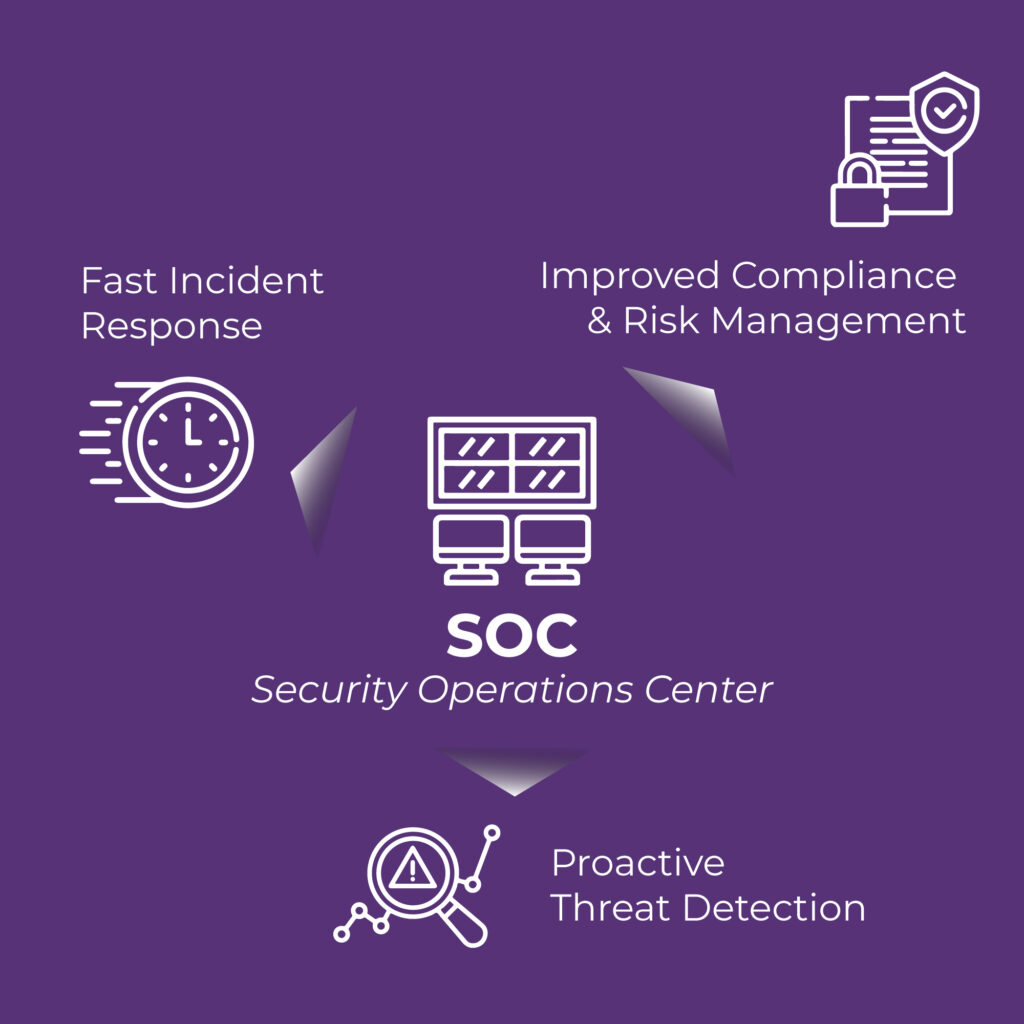
A Security Operations Center (SOC) is a centralized unit within an organization that is responsible for monitoring, detecting, and responding to cybersecurity threats and incidents. It is staffed by a team of security analysts who leverage advanced technologies, threat intelligence, and incident response processes to protect the enterprise’s networks, systems, and data.
The key benefits of a SOC for large enterprises are:
🕵♂️ Proactive Threat Detection: A SOC continuously monitors the enterprise’s network and systems, analyzing logs, events, and alerts to detect potential security threats and vulnerabilities. This proactive approach allows for early detection and response to security incidents, minimizing the impact of breaches and reducing potential financial and reputational damage. By staying ahead of emerging threats, the SOC can enhance the overall security posture of the enterprise.
⏱ Fast Incident Response: In the event of a security incident or breach, a SOC enables a swift and coordinated response. The security analysts in the SOC are trained to quickly assess the situation, contain the threat, investigate the incident, and mitigate any potential damage. This rapid incident response helps minimize downtime, limit data loss, and restore normal operations efficiently. Additionally, by documenting and analyzing incidents, the SOC can improve incident management processes over time.
📃 Improved Compliance and Risk Management: Large enterprises often need to comply with industry regulations and standards related to data protection and security. A SOC helps ensure compliance by monitoring security controls, generating audit logs, conducting risk assessments, and implementing necessary security measures. By actively managing risks and adhering to compliance requirements, the SOC helps the enterprise avoid penalties, legal issues, and reputational harm.
Leave a Reply